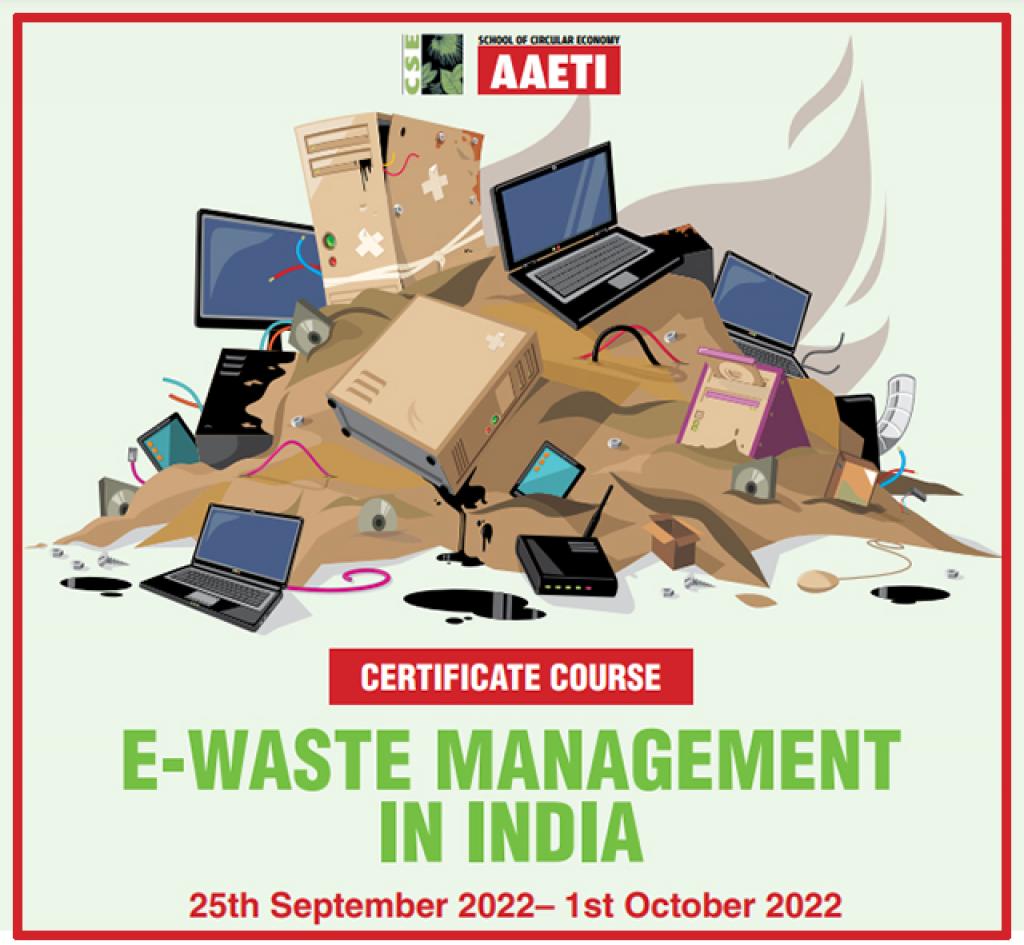
In 2019, the world produced 53.6 million metric tonne (MT) of e-waste; Asia accounted for the largest share of this dump -- 24.9 MT. India, the third largest producer of e-waste after China and the US, generated 3.2 MT, with a per capita generation figure of 2.4 kg.
Despite the government’s initiatives, 90 per cent of this waste is handled and managed by the informal sector – unsustainably. As part of its programme on sustainable solid waste management, Centre for Science and Environment (CSE) has focused on – besides other key waste streams -- the e-waste component.
CSE recognises the need to adopt resource-efficient waste management regimes, based on which it has conceptualised a one-week certificate course on ‘E- Waste Management in India’. The objective of the course is to provide a better understanding of the key issues in e-waste management, legal aspects and legislative tools for effective management, while also focusing on how shifting to responsible purchase and consumption patterns can strengthen and foster the proposed concepts of ‘Circular Economy’ and ‘Resource Efficiency’.
The mode of training would be online (self-paced) with a proper mix of interactive sessions hosted by subject matter experts. The course provides the flexibility of accessing on-demand literature, virtual presentations and case studies. Assessment exercises and group discussions on the modules would be a part of the sessions.
COURSE HIGHLIGHTS
- Status of e-waste management in India
- Major provisions of the E-Waste Management Rules, 2016 and amendments thereof
- Utilisation of the concepts of circular economy and resource efficiency
- Ill effects of mismanagement of e-waste
- Effective ways of handling e-waste n Understanding EPR in e-waste
- Best practices and models for e-waste management
FOR FURTHER DETAILS, PLEASE CONTACT:
Minakshi Solanki
Research Associate,
Solid Waste Management Programme,
Centre for Science and Environment
Email: minakshi.solanki@cseindia.org
Mobile: +91 7827392845